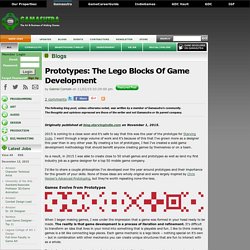

Video game players become less competitive with age, study shows. A new Quantic Foundry study looking at the gaming motivations of different generations has found that competitive gaming belongs to the young, and strategy games belong to everyone.

By collecting data from over 140,000 players using a Gamer Motivation Profile, Quantic found that interest in competition declines the most with age. In Quantic's framework "competition" is defined as "the appeal of competing with other players in duels, matches, or team-vs-team scenarios," and while that appeals to players, mainly male, between the ages of 15-25, as they get older their interest tapers off significantly. Although the decline - shown in the graph below - happens more rapidly for men than women, by the time both genders turn 45 the difference in interest is miniscule.
Although the study found that most gaming motivations decline with age, strategy games were the most age-stable, with players across the entire age spectrum all showing a similar desire to play titles in that genre. Jennifer Bullard's Blog - Game Industry Word Problems. The following blog post, unless otherwise noted, was written by a member of Gamasutra’s community.

Junxue Li's Blog - Introducing Tencents Mini Console. The following blog post, unless otherwise noted, was written by a member of Gamasutra’s community.

The thoughts and opinions expressed are those of the writer and not Gamasutra or its parent company. Tencent’s mini console –Ministation was available for sale in China on Dec 23, 2015. A few points makes this launch interesting: The console is presented by the Chinese mobile giant Tencent, not by some start-up or Kickstarter; And the timing, it was just a few months after the official discontinuation of OUYA; And in such a market where consoles don’t have good reception.
Here I would like to introduce to you the features of this new console, it would be funning to look into the device and Tencent’s ambition. Pepe Agell's Blog - The Ultimate Ad Format Cheat Sheet for Mobile Devs. The following blog post, unless otherwise noted, was written by a member of Gamasutra’s community.

The thoughts and opinions expressed are those of the writer and not Gamasutra or its parent company. This article originally appeared on Playbook, Chartboost's blog dedicated to the business of mobile gaming. Freemium mobile game Mr Jump, built by French indie studio 1Button, raked in more than $20,000 a day when it added an important feature to its game. No, it wasn’t a new character or an in-app purchase — the jump in daily revenue came from a series of interstitial ads. Stories like Mr Jump’s are becoming the norm, as there’s little doubt that mobile ads are a great way to generate revenue. Шесть фатальных ошибок при управлении кроссплатформенным проектом. Компания Nika Entertainment рассказала в своем блоге на App2Top.ru, как спастись от главных промахов при работе над социальными и мобильными играми.

Мы в Nika Entertainment выделяем шесть базовых проблем, с которыми могут столкнуться разработчики. История создания игры “Чудо Микс”: от финального аккорда к бестселлеру. Украинская компания Nika Entertainment поделилась с App2Top.ru историей разработки своей игры в жанре “три-в-ряд” - “Чудо Микс”.

История “Чудо Микса” началась осенью 2014-го, когда Nika Entertainment как раз исполнился год. Правда, к тому моменту нам уже было, чем похвастать: за плечами было попадание игр “Магическая Кухня” и “Загадки Атлантиды” в топы международных платформ, портирование на азиатские сетки, такие как Mixi и Mobage, и удержание лидирующих показателей на них. Кроме того, на конец третьего квартала прошлого года суммарное число пользователей наших игр достигло отметки в 40 млн человек. Несмотря на очень удачный старт на рынке казуальных игр, мы тогда были охвачены мечтой о создании мидкорных проектов и предполагали, что они станут нашей основной нишей в 2015. Nika Entertainment: женская аудитория не жалует уровни «на время» в match-3. Сегодня в App Store и Google Play можно найти множество проектов в жанре match-3.

Только одни поднимаются в кассовом топе, а другие так и остаются незамеченными. Секреты разработки match-3: интервью с Awem, Nevosoft, Nika, Playrix и Renatus. Компании Awem, Nevosoft, Nika Entertainment, Playrix и Renatus рассказали App2Top.ru о секретах разработки игр в жанре “три-в-ряд”.

Секреты разработки match-3: интервью с Awem, Nevosoft, Nika, Playrix и Renatus. Raph Koster's Blog - Ten Years of World of Warcraft. The following blog post, unless otherwise noted, was written by a member of Gamasutra’s community.

The thoughts and opinions expressed are those of the writer and not Gamasutra or its parent company. Ten years of World of Warcraft. Well. So many thoughts. WoW has always been a contradiction of sorts: not the pioneer, but the one that solidified the pattern. Gabriel Cornish's Blog - Prototypes: The Lego Blocks Of Game Development. The following blog post, unless otherwise noted, was written by a member of Gamasutra’s community.

The thoughts and opinions expressed are those of the writer and not Gamasutra or its parent company. Originally published at blog.starvingindie.com on November 1, 2015. 2015 is coming to a close soon and it’s safe to say that this was the year of the prototype for Starving Indie. I went through a large volume of work and it’s because of this that I’ve grown more as a designer this year than in any other year. By creating a ton of prototypes, I feel I’ve created a solid game development methodology that should benefit anyone creating games by themselves or on a team. As a result, in 2015 I was able to create close to 50 small games and prototypes as well as land my first industry job as a game designer for a top 50 mobile game company.
I’d like to share a couple philosophies I’ve developed over the year around prototypes and their importance for the growth of your skills. Raph Koster's Blog - Games affecting people. The following blog post, unless otherwise noted, was written by a member of Gamasutra’s community. The thoughts and opinions expressed are those of the writer and not Gamasutra or its parent company.
This comes up, especially in relation to questions about free speech. It comes up, in terms of working with compulsion loops some might term addictive. It comes, in terms of whether or not game designers worry about what they do. The most common answer is “no,” likely because it’s an uncomfortable question people would rather not think about, or one that positions games as somehow an implicitly risky medium and vulnerable to censorship, or because of a disclaimer of responsibility embodied in the notion that we’re just providing entertainment and anything past that is the player’s problem.
The Metrics Aren't the Message. Metrics can rule you -- but should they? The Workshop Entertainment's new design director and Free Realms veteran Laralyn McWilliams explains how a pivotal moment in her life showed her that overreliance on analytics and friction in social games isn't the answer. This article isn't about whether free-to-play games are bad, or social games are evil.
For the record, I don't believe either case is true. This, like life and like metrics, is about evolution. It's about change. It started back in 2006, when I began working on Free Realms. After launch, we started gathering data and looking at metrics. Herman Tulleken's Blog - 20 Fun Grid Facts (Hex Grids) The following blog post, unless otherwise noted, was written by a member of Gamasutra’s community. The thoughts and opinions expressed are those of the writer and not Gamasutra or its parent company.
At Gamelogic we are obsessed with grids. We make tools for grids and write about grids, but our obsession goes way beyond this (we even have "Grid shirt Fridays"). We thought it might be a good idea to share some of the interesting (and obscure) facts we have uncovered in our quest to know everything we can about grids and their use in games. Video: Making games about rich experiences, not addiction. "This trend [of Skinner Box design] is actually not only morally reprehensible, but actually bad for business if you just design down the hole leading to addiction. " At the GDC 2014 'Rant Apocalypse" session, academic and author Heather Chaplin delivered an argument against game developers modelling the games they make to take advantage of addictive behavior.
Her premise was simple: As a game maker, do you want to play to addiction in order to make money, or create a game that people want to keep playing? It was a frank talk that's well worth watching, and if you missed it you can now watch it for free over on the GDC Vault's new YouTube channel. In addition to this presentation, the GDC Vault and its new YouTube channel offers numerous other free videos, audio recordings, and slides from many of the recent Game Developers Conference events, and the service offers even more members-only content for GDC Vault subscribers. Samuel Rantaeskola's Blog - A modern asset pipeline: The pipeline. The following blog post, unless otherwise noted, was written by a member of Gamasutra’s community.
The thoughts and opinions expressed are those of the writer and not Gamasutra or its parent company. This is the fourth and last post in a series about a modern asset pipeline. Here are the previous posts: A modern asset pipeline Everything points towards a modernized asset pipeline in which the bulk of the optimization work is done behind the scenes, automatically. Satoru Iwata in quotes: The personality, the programmer, the leader.
The untimely passing of Satoru Iwata has led to an outpouring of condolences from people both inside and outside the game industry, for good reason. Iwata was not only a thoughtful business leader, but also a committed person who worked his way up the ranks in the game industry, as a programmer at HAL Laboratory to the head of one of the most powerful entertainment companies in the world at Nintendo. We've gathered just a handful of quotes that reflect Iwata's personality, influence, savvy, and his opinion on video games -- where they are and what he thought they should become. His influence will be felt for decades to come. Devs, your Flash games are temporarily blocked by default on Firefox.
Heads up, Flash devs: Mozilla has updated its popular Firefox browser to temporarily block all versions of Flash by default due to multiple significant security flaws that Flash maker Adobe has publicly acknowledged and vowed to fix. If you've ever made a game that relies on Flash in some capacity, you should know that this change will affect the way many people play your work. By adding Flash to the Firefox blocklist, all Firefox users will have to manually enable the Flash plugin when they want to use it. Mark Griffiths's Blog - Net call: Internet Gaming Disorder and Internet Addiction Disorder are not the same. Net call: Internet Gaming Disorder and Internet Addiction Disorder are not the same The following blog post, unless otherwise noted, was written by a member of Gamasutra’s community. The thoughts and opinions expressed are those of the writer and not Gamasutra or its parent company.
Over the last 15 years, research into various online addictions has greatly increased. Alongside this, there have been scholarly debates about whether internet addiction really exists. Some may argue that because internet use does not involve the ingestion of a psychoactive substance, then it should not be considered a genuine addictive behavior. There have also been debates among scholars that consider excessive problematic internet use to be a genuine addiction as to whether the those in the field should study generalized internet addiction (the totality of all online activities) and/or specific addictions on the internet such as internet gambling, internet gaming and internet sex. Further reading. Richard Rouse III's Blog - Is It Worth It? Whiplash & The Fetishization of Crunch. The following blog post, unless otherwise noted, was written by a member of Gamasutra’s community. The thoughts and opinions expressed are those of the writer and not Gamasutra or its parent company.
A few months back, Clint Hocking published a blog post about his time crunching on Splinter Cell: Chaos Theory that spurred a lot of discussion about overtime in the industry. In the piece Hocking felt his own long hours on the project had resulted in something he called "brain damage" - he had been focused so intently on game development and done it so many hours on Splinter Cell, that all he could remember from that time was the game's development.
It was as if the rest of his life during that period hadn't even happened. Neils Clark's Blog - Games with Friends on a Saturday Night. Filip Wiltgren's Blog - Stop Gaming and you will be a Better Designer. Joshua Dallman's Blog - How to Design a Social Game. New study sheds light on how teens form relationships around video games. Fred Tang's Blog - Discussion of social aspects of social game. The following blog post, unless otherwise noted, was written by a member of Gamasutra’s community. 10 seminal game postmortems every developer should read. Before I came to serve as a Gamasutra editor, I was a Gamasutra reader, and one of my favorite aspects of the site were the postmortems developers would write about what went right (and wrong) while they were making games. Andreas Papathanasis's Blog - Can crunch ever be fixed in the games industry? Adam Moore's Blog - How to Prioritize Features and User Stories.
Oscar Barda's Blog - Art movements in video games, Machinalism. Video: Building the AI for Hearthstone. Andreas Papathanasis's Blog - Data obsession and the politics of facts. Sponsored: Threats to success in the game industry (and how to beat them) Lars Doucet's Blog - Where have all the Flash developers gone? Filip Wiltgren's Blog - Watch Your Iterations. Raghav Mathur's Blog - How To Write Compelling Feature Lists: Imperative Verbs. Fourteen Forms of Fun. Video: Designing games about tricky emotions like longing, or love. UK's advertising standards body sanctions free-to-play kids' game dev.
The Platform Duel: Web vs. Mobile in Social Casino Gaming. Mark Robinson's Blog - 5 top tips for A/B Testing in free-to-play games. Zynga beats earnings estimates. Vasiliy Sabirov's Blog - How to analyze paying users. Part 2, The structure of the revenue by time. Vasiliy Sabirov's Blog - How to analyze paying users? Part 1, RFM-analysis. Selling Feelings.